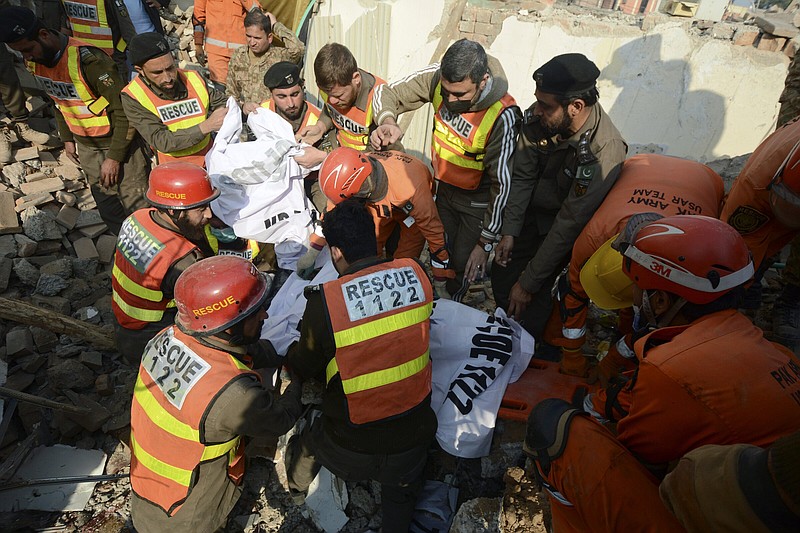PESHAWAR, Pakistan -- Pakistani authorities scrambled Tuesday to determine how a suicide bomber was able to unleash an explosion in a crowded mosque inside a highly secured police compound in Peshawar. The death toll from the blast climbed to 100.
Monday's bombing, which left at least 225 wounded, raised alarm among officials over a major security breach at a time when the Pakistani Taliban, the main anti-government militant group, has stepped up attacks, particularly targeting the police and the military.
In a televised speech to parliament Tuesday, Defense Minister Khawaja Mohammad Asif accused the Pakistani Taliban of carrying out the attack, saying they were operating from neighboring Afghan territory and demanding the Afghan Taliban take action against them. A Pakistani Taliban commander earlier claimed responsibility, but a spokesman for the group later distanced the group from the carnage, saying it was not its policy to attack mosques.
More than 300 worshippers were praying in the Sunni mosque, with more approaching, when the bomber set off his explosives vest, officials said. The blast blew off part of the roof and what was left caved in, injuring many more, according to Zafar Khan, a police officer.
Rescuers worked through the night and into Tuesday morning, removing mounds of debris to reach worshippers still trapped under the rubble. The death toll rose as more bodies were found and several of the critically injured died, said Mohammad Asim, a government hospital spokesman in Peshawar.
Most of the victims were police officers, he said.
"It's not a security lapse, it's a security breach," said Akhtar Ali Shah, a former regional interior secretary. "From all entry points, there are multiple layers of security you have to cross" with ID checks.
Speaking to parliament, Interior Minister Rana Sanaullah Khan said investigators suspect that the bomber was helped by someone from the families of government employees who live on the compound near the mosque. He said 97 of the 100 dead were police officers and 27 officers remain in critical condition.
The military's media wing declined an Associated Press interview request for the chief of army staff. Asim Munir has yet to do any media appearances.
Kamran Bangash, a provincial secretary-general with the opposition Pakistan Tehreek-e-Insaf party, blamed the instability on the government of Prime Minister Shahbaz Sharif. The party's leader, former Prime Minister Imran Khan, denounced the attack.
The government "has failed to improve the economy and law and order situation, and it should resign to pave the way for snap parliamentary elections," Bangash said.
U.S. Secretary of State Antony Blinken, who is on a visit to the Middle East, tweeted his condolences, saying the bombing in Peshawar was a "horrific attack."
"Terrorism for any reason at any place is indefensible," he said.
Information for this article was contributed by Riazat Butt of The Associated Press.

